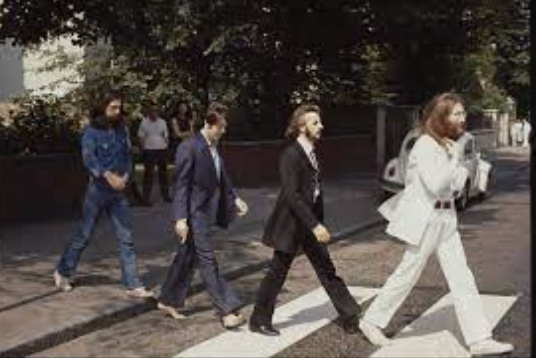Every once in a while, something pops up on Facebook that piques my interest.
“What is the greatest ONE LINE in a song ever?”
I hate to be too boomer-centric, but I don’t know if there was ever a generation to which music was as big a deal as it has been to us. We were the first generation to be able to take our music with us wherever we went, starting with transistor radios in our pocket and moving on to eight-track players in our cars.
Technology kept getting better and better, to the point where I’ve got nearly 20,000 songs on my smartphone and I can listen to any one of them any time I want. So I figure I’ve heard one helluva lot of great lines, from some amazingly great songwriters.
Whether it’s Lennon and McCartney, Bob Dylan, Jackson Browne, John Prine, Jimmy Buffett or a lot of others, there are so many songs with so many wonderful lines.
I’ll mention a few and then finish with the one that to me is as close to perfect as it gets.
“There’s a hole in daddy’s arm where all the money goes …”
One of Prine’s greatest songs in a 50-year career, the story of a man who returns home from Vietnam with “a purple heart and a monkey on his back.” I’m not sure there was ever a better song about a soldier and the aftermath of combat.
Johnny Cash wanted to record it, but he couldn’t sing the next line — “Jesus Christ died for nothing, I suppose.” He asked Prine if he would change the line for his version. Some writers would be huffy about that, but Prine’s response was real.
“You think I’m going to keep Johnny Cash from singing my song?”
Smart guy.
“The answer, my friend, is blowin’ in the wind …”
There might be a dozen or even two dozen lines that could be considered Dylan’s greatest, but for me it came down to picking something either from “Blowin’ in the Wind” or from “The Times They Are A-Changin’.” Those are the two Dylan songs that have had the most lasting effect and probably will be remembered a hundred years from now.
I chose the former song because it became one of the anthems of the civil rights movement.
“When you see through love’s illusion there lies the danger, and your perfect lover just looks like a perfect fool …”
The first two songs with issue songs, and Jackson Browne sang plenty of them, but “Fountain of Sorrow” was the one providing the most exceptional lyrics. It may not be Browne’s best-known song — his biggest hit was “Somebody’s Baby” from “Fast Times at Ridgemont High” — but it’s a lovely song about the vicissitudes of love in difficult times.
“Fountain” was in the first few years of a career that has spanned half a century, but to me at least, it’s his best song and the line above is his best line. “The Pretender” comes close.
“Well those drifter’s days are past me now, I’ve got so much more to think about. Deadlines and commitments, what to leave in, what to leave out …”
Stretching it a little bit here. This is actually two lines from Bob Seger’s “Against the Wind,” It’s just that the first line doesn’t quite make sense without the second one.
“We all need a little tenderness, how can love survive in such a graceless age?”
It has been 33 years since Don Henley’s “Heart of the Matter,” which was from an album that was essentially about the late Reagan Years, a truly graceless age. But in the ensuing decades, our society has become more and more graceless. Whether it’s Trumps or Kardashians, American culture has become trashier almost yearly.
“Heart of the Matter” is a song about forgiveness, about learning to live without things that mattered to us and forgiving the people who took them away.
There are plenty of others, words that get into our heads and stay there, but to me there is only one line — a relatively short and simple one — that qualifies as the best line ever.
It was the last song on what was actually the last album the Beatles recorded.
“And in the end, the love you take is equal to the love you make.”

